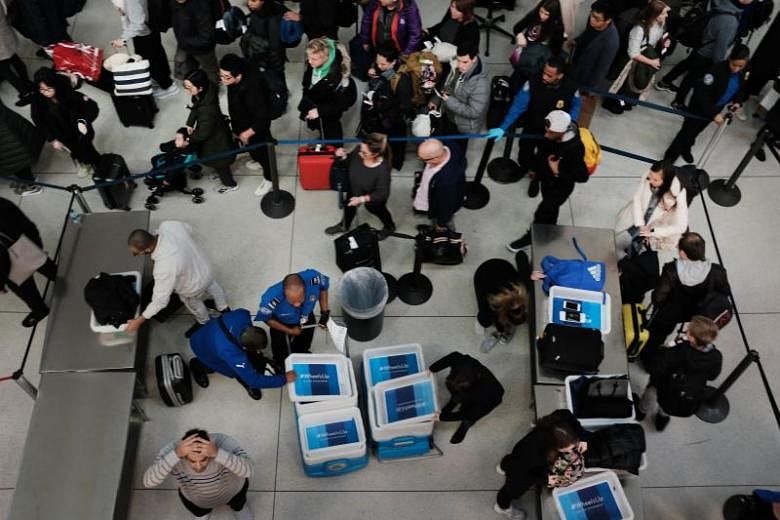BEIJING (BLOOMBERG) - China asked some state-run enterprises to avoid business trips to the United States and its allies, as well as to take extra precautions to protect their devices if they need to travel, according to people familiar with the request.
In recent weeks, the State-Owned Assets Supervision and Administration Commission (SASAC) - a regulatory body that oversees about 100 government-run companies - has told some firms to take only secure, company-issued laptops meant for overseas use if travelling is necessary, the people said.
They said the warning extended to countries in the Five Eyes intelligence-sharing pact: the United Kingdom, Canada, Australia and New Zealand.
The order also said that employees should have the company verify which files they are carrying on any trip and only store them on secure USB flash drives, two people familiar with the warning said separately, adding that the SASAC did not specify how long the travel rules will apply.
The commission did not respond to a fax requesting comment.
Chinese and American executives have become more cautious when travelling after the December arrest of Huawei Technologies top executive Meng Wanzhou in Canada on behalf of the US, and the subsequent detention of two Canadian citizens in China.
The US has also stepped up efforts to catch and prosecute executives at Chinese companies that it alleges steal technology, which has resulted in several legal actions.
In January, state-owned Fujian Jinhua Integrated Circuit and its Taiwan-based partner United Microelectronics were the first companies indicted under the US Justice Department's new initiative. The companies pleaded not guilty. China has repeatedly denied accusations of trade secrets theft.
Meng was charged with conspiracy to defraud banks in relation to transactions that violated US sanctions against Iran, an allegation that comes as the Trump administration seeks to limit Chinese telecom companies from dominating 5G wireless networks.
Meng has denied wrongdoing.

